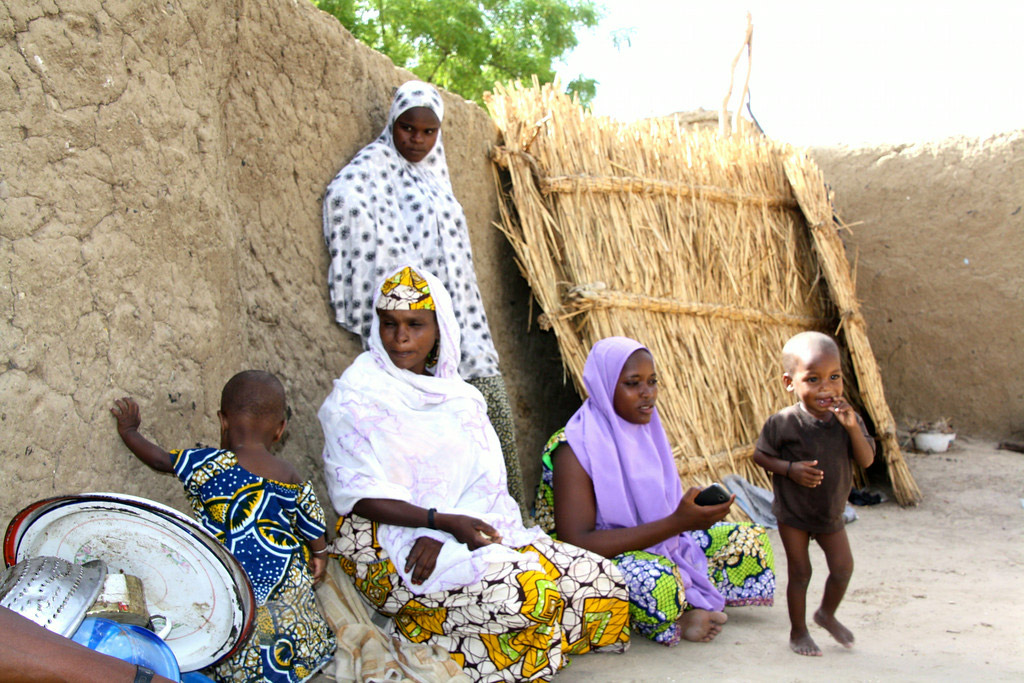Security Council condemns Boko Haram attacks as deadly violence spreads to Nigeria's neighbours
14 February 2015 – The United Nations Security Council has condemned “in the strongest terms” the continued escalation of attacks perpetrated by Boko Haram terrorists, including deadly attacks during the past week which took the lives of many civilians in Chad, Cameroon and Niger.

A group of refugees in Diffa, Niger, after fleeing Boko Haram violence in Nigeria.
In a statement issued to the press late yesterday evening, the Council deplored the ongoing escalation of Boko Haram violence, which has spread beyond northern Nigeria, where the group has perpetrated a raft of heinous crimes against civilians.
Council members cited attacks on 13 February in Ngouboua, Chad, against civilians, which killed many persons including the local traditional leader and injured several others, as well as an 8 February attack in Kerawa, Cameroon, and February 6-8 attacks in Diffa, Niger.
In its statement, the Council extended its condolences to the families of the victims and its sympathy to all those injured in these heinous attacks, as well as to the peoples and the Governments of the Republics of Chad, Cameroon and Niger.
“The members of the Security Council reaffirm that terrorism in all its forms and manifestations, including the actions of Boko Haram, constitutes one of the most serious threats to international peace and security,” said the statement, stressing that such acts are “criminal and unjustifiable,” regardless of their motivation.
Council members also reiterated their determination to combat all forms of terrorism, in accordance with its responsibilities under the UN Charter, and underlined the need to bring perpetrators, organizers, financiers and sponsors of acts of terrorism to justice.
Finally, the Council reminded States that they must ensure that measures taken to combat terrorism comply with all their obligations under international law, in particular international human rights, refugee and humanitarian law.
Source: United Nations
- 359 reads
Human Rights
Fostering a More Humane World: The 28th Eurasian Economic Summi

Conscience, Hope, and Action: Keys to Global Peace and Sustainability

Ringing FOWPAL’s Peace Bell for the World:Nobel Peace Prize Laureates’ Visions and Actions

Protecting the World’s Cultural Diversity for a Sustainable Future

Puppet Show I International Friendship Day 2020

